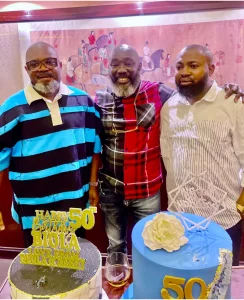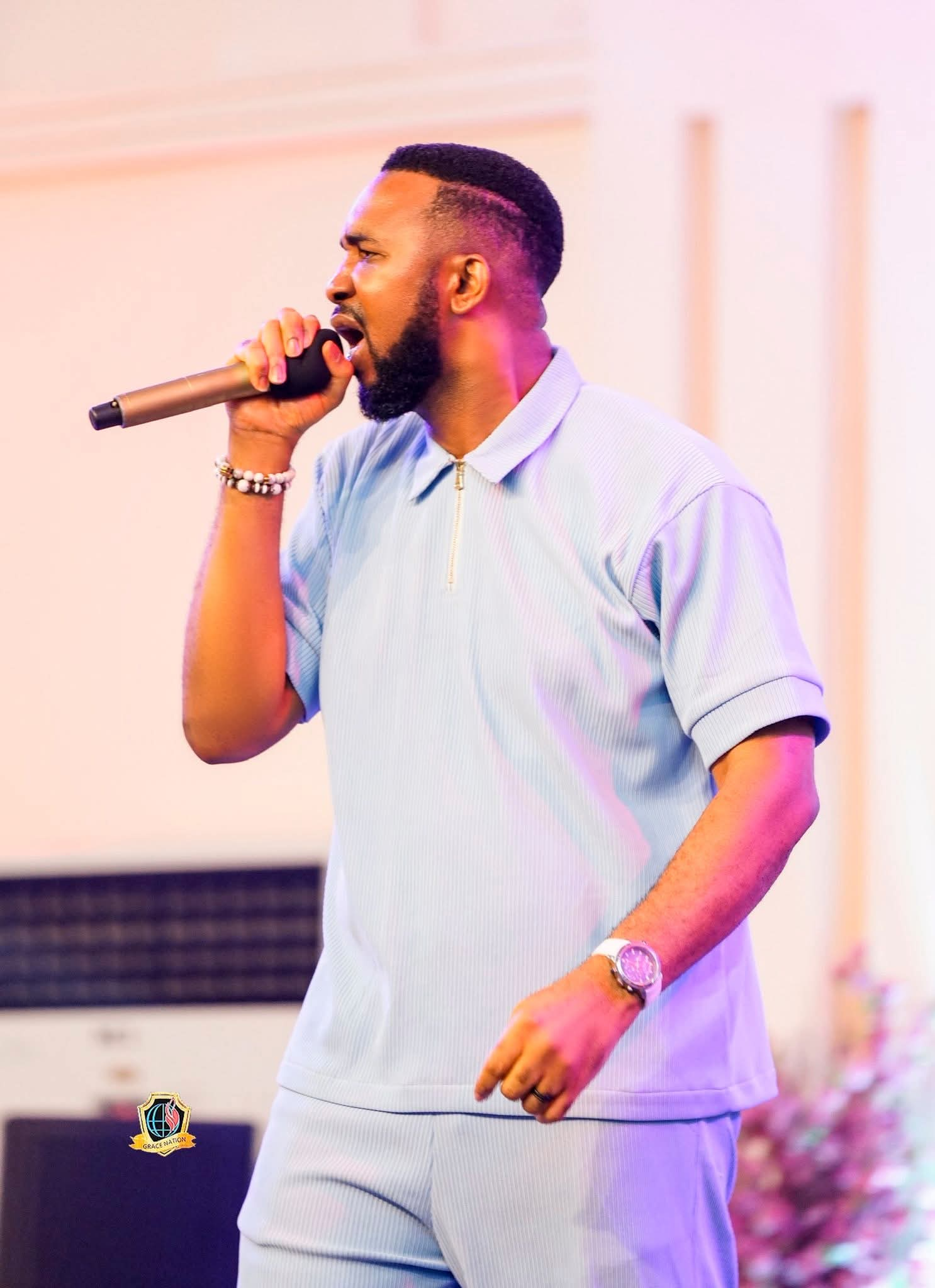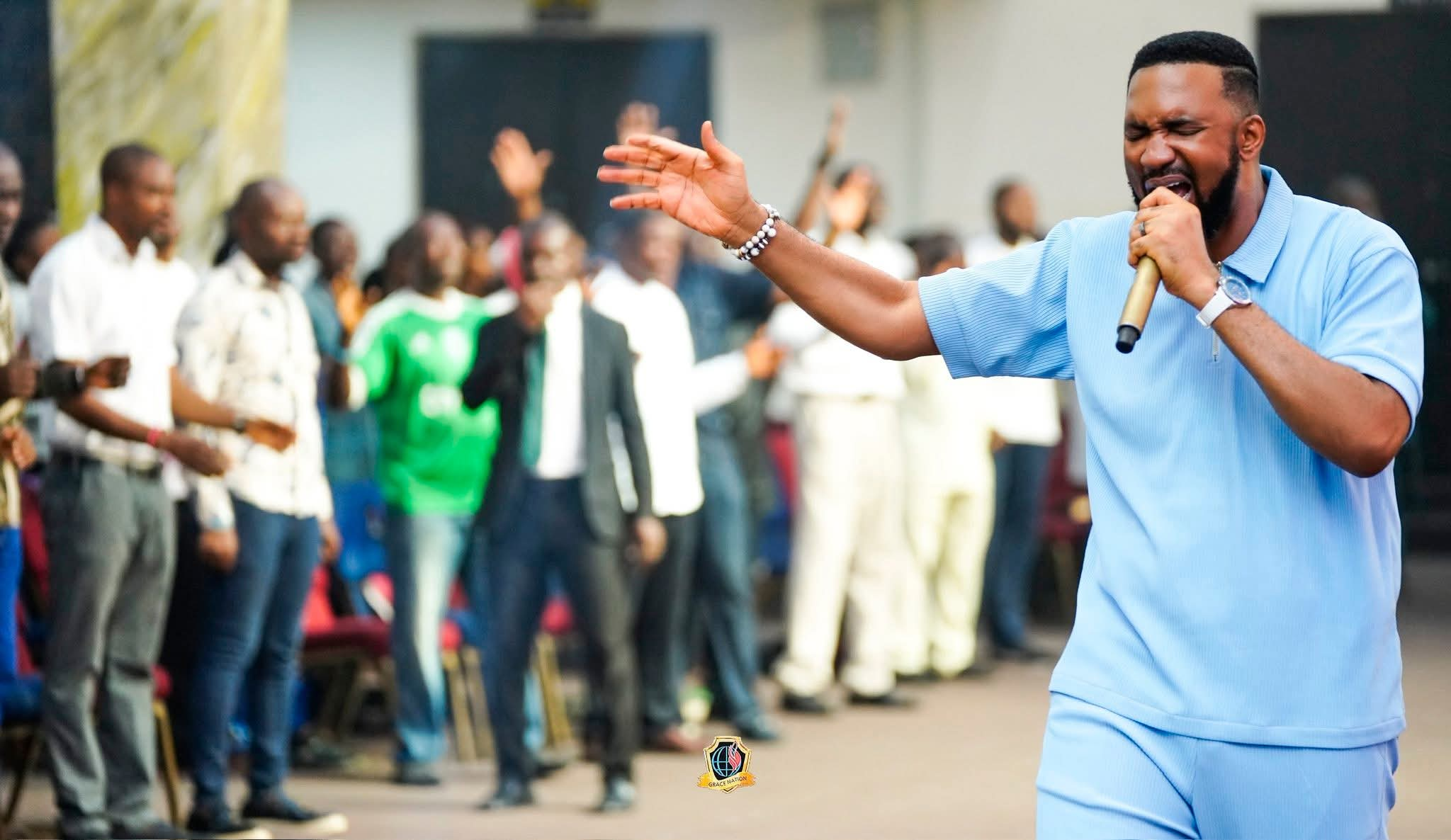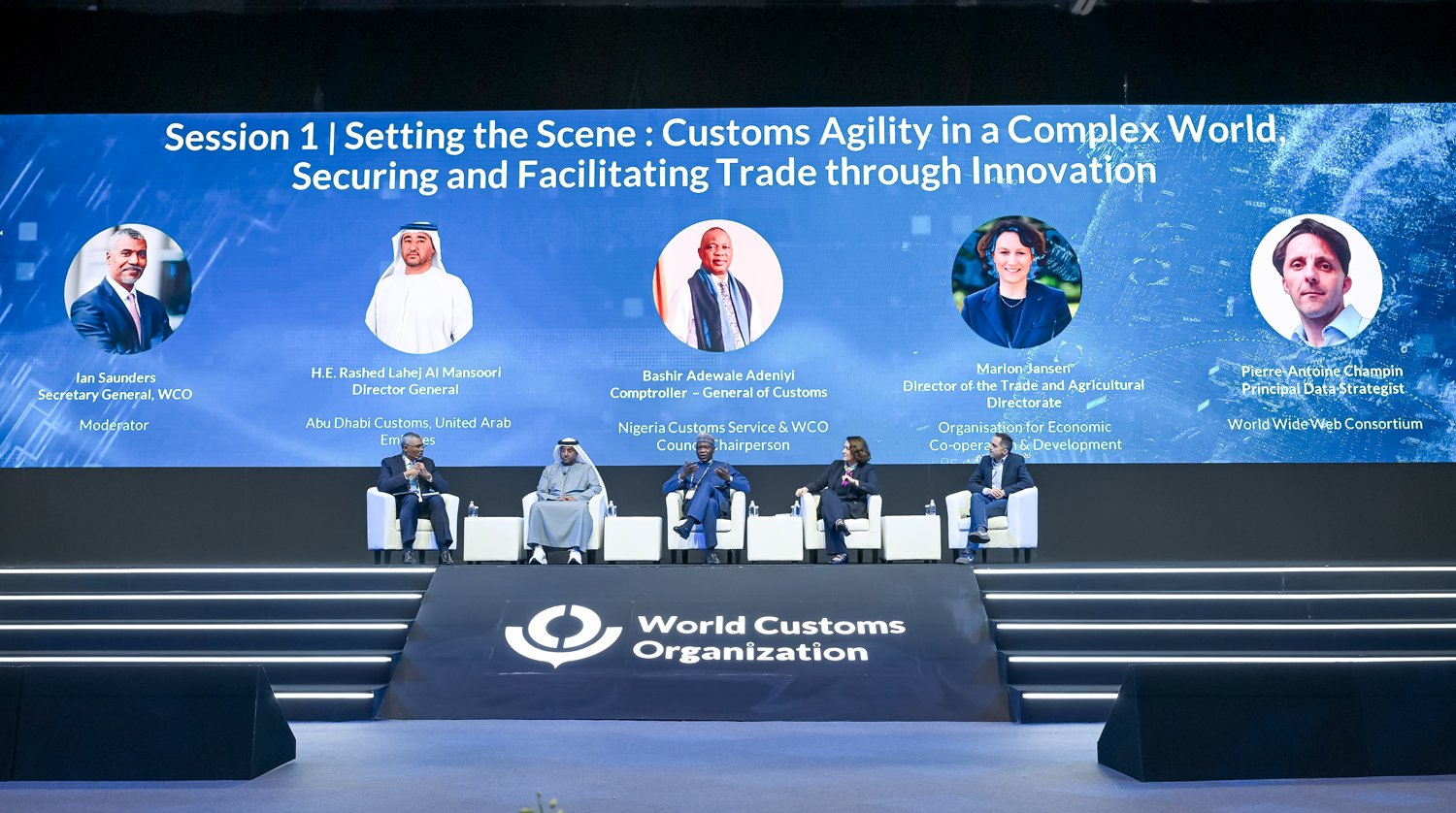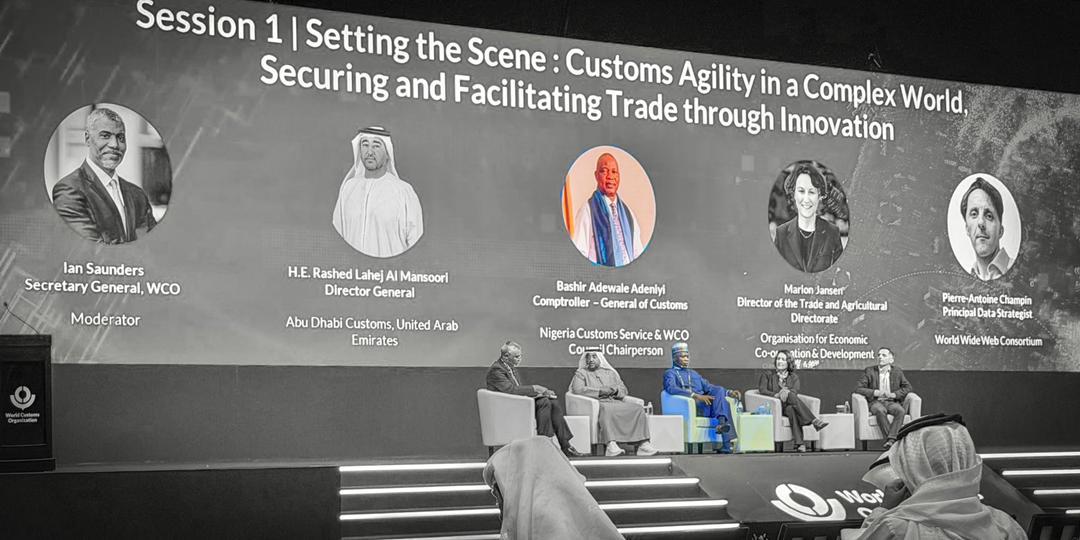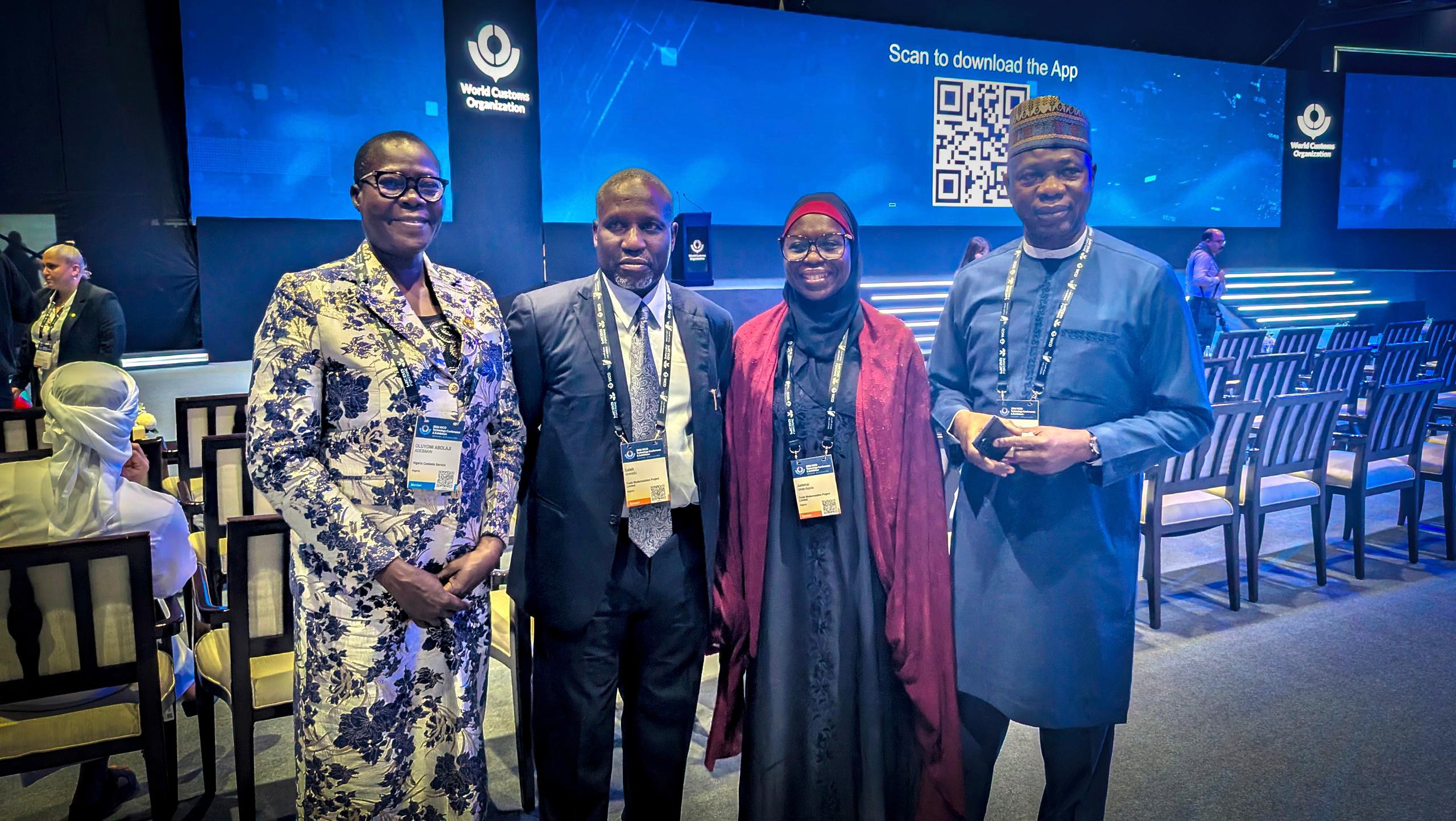Uncategorized
Popular Journo, Abiola Aloba @50: My Friend Comes of Age
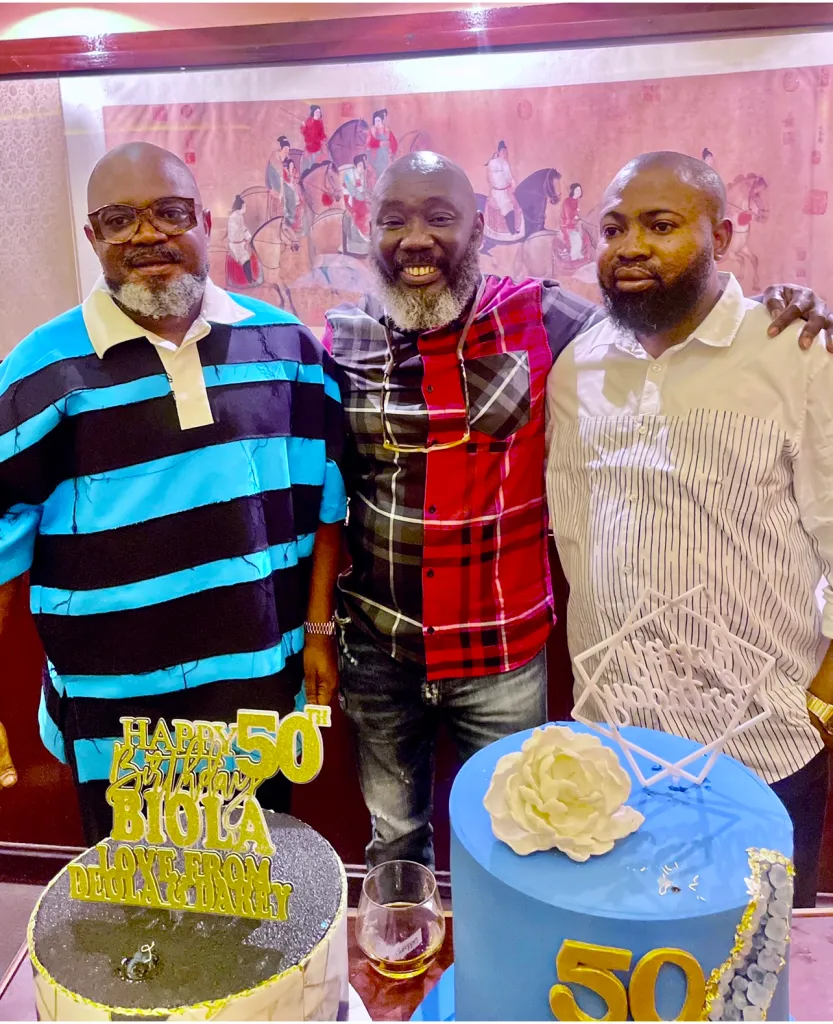
Popular Journo, Abiola Aloba @50: My Friend Comes of Age
By Lanre Alfred
I was a starry-eyed advert executive at the Breeze, a defunct magazine owned by General Oladipupo Diya (rtd) in 2001 when my path crossed with Abiola Aloba’s. I recall with loving and longing fondness how we met inside Alade market, Ikeja, Lagos, while marketing my first book, Business Arcade (a business directory, just like the famous Yellow Pages). Smooth-talking and socially savvy, Alobsy, as I grew to call him, was also an advert executive at the Encomium. We saw a lot of each other before becoming friends. You cannot meet Alobsy and not get drawn to his trademark toothy smile and snow-white dentition.
My first impression of him was that, damn, this dude can dress! Over the years, that impression has been firmly reinforced and established. Even at 50, you can tell that he is at home with the de rigueur of fashion. Then, my book was new in the market, which made getting adverts and patronage very difficult while the Encomium was already a market leader. He won my heart when he convinced a client to advertise in my book without being formally acquainted with me, because, as he would later tell me, he had also been attracted to my well-ironed starched shirts and very strong perfume. A friendship that would survive the tempests, trials, tragedies, and triumphs of a lifetime sprouted from the underbelly of that jumbled market.
Being an advert canvasser entails being charismatic and persuasive; Alobsy effortlessly embodies those characteristics and more. Where I was quiet and self-effacing, my friend was gregarious and cosmopolitan, sprightly and silver-tongued, and could, to borrow the cliché, sell ice to an Eskimo. He speaks the English language with the mastery and drawl that would make you think he attended Harvard University whereas he graduated from the University of Ilorin. Alobsy makes friends easily. Then, he had friends in Alade market, just as he did in the swankiest fashion stores in Victoria Island, Ikoyi, and everywhere in between.
Since I made his acquaintance exact 21 years ago, our relationship has blossomed into a bond emblematic of the best form of filial devotion and affection. I would discover that beneath the glitz and glamour of being a famous journalist with all the accoutrements of fame and power at his beck and call, he is humane and humble. He is imbued with nonpareil intelligence, a clear-thinking, analytical mind, quick wit and sheer oratorical skills. Aloba is one of the very few people I know that can never be blindsided or fazed by any eventuality. His calmness and infinite optimism even in the face of life’s greatest odds are inspiring and worthy of the respect and aspiration of younger generations.
Interestingly, he became my diurnal and nocturnal collaborator and confidante. We leaned on each other for strength and support. Hand in hand, we slapped the streets of Lagos during the day and savoured without inhibitions all the trappings of the city’s nightlife, especially on the Island, which later became our orbit.
Aloba and I rocked this town! While many were asleep as nature dictates at midnight, life takes on a vibrant hue for others in different parts of the metropolis. For some, it is purely for business. For many others like us, however, darkness provides the necessary cover for unbridled fun. We were always out at ungodly hours; that time of the night when the hosts of heaven, having completed their daily protective cycle on humanity, reluctantly step aside for the hounds of hell whose turn it is to dictate the pace of grave immorality which occurs unhindered at that time.
Honestly, if the pace of life on the mainland is measured and predictable, it is intense and pliable on the Island. We discovered the hangouts for the rich and the very rich; the upwardly mobile and nouveaux riches. We were making the right contacts and connections so we had access to some of these places on a nightly basis.
Despite that our social lives were a tad unrestrained, we were focused and daring because we had similar outlooks on life. We dreamt big. Our friendship blossomed as I moved on to City People magazine in 2002 where I started writing the column; Life on the Island. He later became the editor of Encomium’s fashion and style magazine. It was a no-brainer, therefore, that he was the best man at my wedding, a gesture I gladly reciprocated during his as one of the groomsmen.
Friendship is a form of love with trust and loyalty as its foundation. Loyalty means a lot to me, and Alobsy has proved to be more than a loyal friend. If I got lost at sea, I know he will sail day and night to find me. Twenty years after we became friends, it doesn’t seem like we have aged. We still shriek at the sight of each other as we used to in those madcap days of youth. We still gist excitedly when time and chance permits. But we no longer rock the town at ungodly hours again, alas. Lol!
Yes, there is melody in his back-story. You take everything in and get caught in its speechless rapture. There is a sparkle in the narrative too. The native of Ijebu-Jesha, Osun State, emits a rare shine that imbues the day with light and hangs upon the cheek of night, like luminous beams of lighthouses. Like the proverbial shiny jewel in an Ethiop’s ear, Aloba emits an uncommon glitter too rich to be ignored and too dear to be squandered.
Indeed, an understanding of Aloba’s story is essential in knowing the forces that shaped his life and moulded him into the man he has become.
Indeed, in his back-story, you encounter the musical embracing of history and rhythm, race and rhyme, melody and passion in an actual stunning event of a life unfurling. Even in this age of ubiquitous hyperbole, it can safely be said that he is one of the most inspiring forces of nature in the media industry.
Unlike too many individuals stuck in the role of minor casts or fleeting characters in their own stories, Aloba leaps from the pages of history as a fully formed and rounded character, cementing his place as one of the most daring and phenomenal creative minds of our time.
Knowing Aloba is never as cathartic as experiencing his exuberance and dazzle up close. It is as delightful as the bloom and rewards of the most tasking yet, successful endeavour. His wit would be intimidating if not for his natural and infectious charm.
Indeed, Biola Aloba is indeed a great guy from a good home! Growing up, Aloba’s parents accorded him no such indulgence. Rather than foster his descent into decadence, they raised him on a bittersweet diet of tough love and inexorable care thus, his maturation into a solid dude. Unlike most of his peers who were born into affluence and raised in verdant luxury, he wasn’t raised like a passenger on what was intended to be a pleasure excursion. Thus, he had not the luxury of time to find fault as soon as the journey became a little weary.
The characteristics of the spoiled child did not tarnish him in childhood neither did it mar his psyche through adolescence and his strides in adulthood. Yet, childhood ensconced Aloba like a garment that carries nobly the name of the proverbial wild Highland clan of minors and adventurous boys. If his lineage could be classified among such noble scions of dreamers and adventurists, he would maybe be counted among the clan from those hills where rain is not so much an incident as an atmosphere. No be lie!
As a child, his imagination was constantly lit by the tempestuous flame of youth; his thoughts flowered imaginatively as he engaged in a constant struggle to reconcile the wild, playful haul of his hormones with the ancient wisdom persistently drummed into his head and his mind by his conservative parents.
Therefore, adventurous and wildly imaginative as he was, my friend and brother could not yield to the arbitrary lure of juvenile wiles nor pretend to live in a verdant pavilion of affluent spoils and consequence-free whims. Thanks to his parents, a great deal of his childhood was spent imbibing and appreciating the moral rectitude and military qualities of the Highlander and conservative Christian in one breath.
Notwithstanding the moral strictures by which he was raised, his childhood in Gbagada and Ogba, Lagos, was blissful and memorable. He was a truly loved child.
Honestly, his parents had no trust fund to bequeath to him. The only fortune he inherited from them was a good character. They were uncompromising moralists and conservatives. He learnt a lot from his parents. From his father, he learnt humility, sacrifice, tact, wisdom, hard work and patience. Whatever he learnt from his father was reinforced by his mother. They taught him to value every human life and relationship.
Whenever the discussion segues to his parents, Aloba, like most of his peers that were raised by parents belonging to the conservative era, fondly relieved memories of the good old days when he enjoyed the rare privilege of the timeless wisdom of the ages from them. Having lived full lives of their own, they had added to their repository of insight before passing it on to him and his siblings and, in effect, subsequent generations of Alobas.
He considers himself very fortunate to have grown up in the care of such loving and moral parents. And he says that it helped him situate the fount of his parents’ uncommon humanity and capacity for tough love. His parents were both strong and outgoing. They were an uncompromising pair who helped make a success of the family’s moral code.
Indeed, we have come a long way and I cannot but thank God that Alobsy has been an integral part of my variegated journey. Now, we are living some of those big dreams that we dreamt of in our small cocoons.
Ordinarily, for my dear friend, no celebration would have been too grand to organise in his honour as he turns 50. But for a recent personal tragedy (losing his beloved first daughter to cancer), we will not roll out the drums. Yes, were things normal, we would have shut down a whole city anywhere in the world to celebrate his 50th birthday.
We would settle for pockets of mini-celebrations by family, friends, and associates while basking in the blizzard of good wishes and felicitations that would buffet him.
He will, however, always be one of the most important people in my life. Alobsy, thank you for the beauty and blessing of your friendship.
May God comfort you, bless your home and prosper you even more. May all your aspirations come to fruition. And may the decades ahead be more fulfilling and fruitful.
news
Ramadan 2026: Let’s Be United, Shina Akanni Urges Muslims.
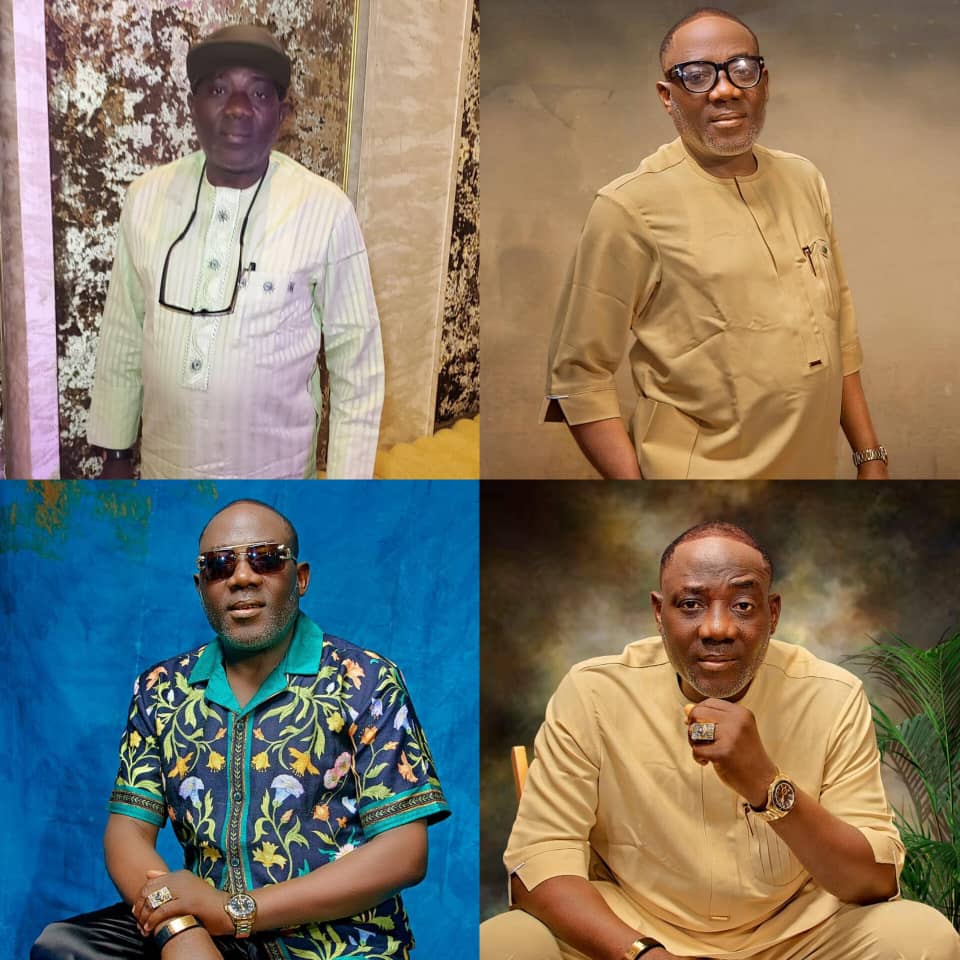
Ramadan 2026: Let’s Be United, Shina Akanni Urges Muslims.
As Muslims all over the world begins the 30 days compulsory fasting and prayer today,top Fuji Musician Aare Sir Shina Akanni Aroworeyin Scorpido has congratulates them for witnessing another month of Ramadan.
Akanni advised them to follow the teachings of the the Holy Prophet Muhammad (SAW) which is peaceful co existence among themselves and their neighbor ‘because Islam is Religion of peace”.
He said the month of Ramadan is an holy month therefore Muslims should try as much as they can to maintain peaceful coexistence among themselves and others and that they should see themselves as ambassador of peace.
While praying for Nigeria,Aare Sir Shina Akanni Aroworeyin Scorpido said he believes that there will be an economic turnaround soon because what’s is happening now are signs of thought times that never last “if we can pecevere things will get better”.
The Scorpido crooner who recently released a hip hop single titled “Magbelo” said he is currently working on a complete album which will be released before the end of the year.
Aare Sir Shina Akanni Aroworeyin Scorpido whose last album ‘ABCD” is still in hot demand said that his next album will be a pot pouri of all kinds of music because his brand of Fuji music is a blend Fuji , Hip-hop,Apala ,Highlife and others.
Uncategorized
The Enemies Within: Jonahs Are Not Manageable — Dr. Chris Okafor
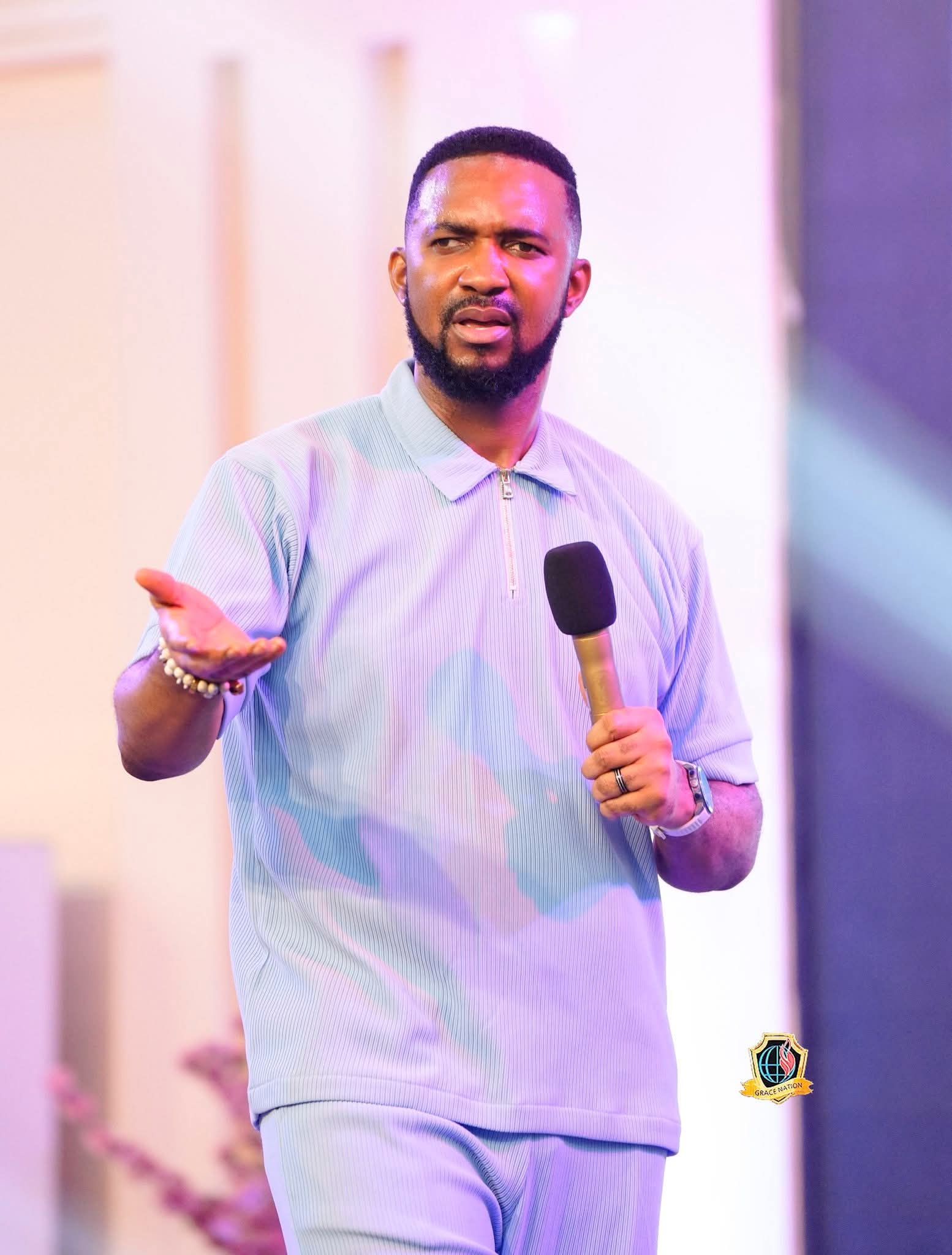
The Enemies Within:
Jonahs Are Not Manageable — Dr. Chris Okafor
…….“To remove Jonah, you must bring Jesus into the matter.”
When a “Jonah” enters a person’s life, confusion, gossip, blackmail, betrayal, and the pull-him-down syndrome often follow. But the moment Jesus Christ is invited into the situation, the storm subsides and stability is restored.
This was the central message delivered by the Generational Prophet of God and Senior Pastor of Grace Nation Global, Dr. Chris Okafor, during the midweek non-denominational Prophetic Healing, Deliverance and Solutions Service (PHDS) held at the international headquarters of Grace Nation Worldwide in Ojodu Berger, Lagos, Nigeria.
The Clergyman also declared that Nothing Happens Without Spiritual Influence
In his sermon titled “The Enemies Within,” Dr. Okafor declared that nothing happens without spiritual involvement. According to him, every visible battle has an invisible root.
Referencing the biblical story of Jonah, the Man of God explained that Jonah’s presence on the ship gave access to a contrary spirit that tormented everyone onboard.
Despite the losses suffered by innocent traders and sailors, the storm persisted because of one man’s disobedience.
However, he noted that when Jesus speaks into a situation, every storm must obey. Just as Christ rebuked the storm and it ceased, so too will the storms in believers’ lives subside when He is invited into their “boat.”
*The Impact of a Jonah*
Dr. Okafor further emphasized that “Jonahs” are difficult to manage. When such individuals are present in one’s circle, progress becomes delayed.
What should ordinarily manifest quickly may be prolonged or frustrated because someone close—someone who understands you deeply—may be operating as a spiritual adversary.
He explained that negative narratives, unnecessary battles, and unexplained setbacks often begin when a “Jonah” gains access to a person’s inner circle.
*The Solution*
“To remove Jonah from the boat of your life,” the Generational Prophet declared, “you must invite Jesus Christ into the matter.”
According to him, when Jesus takes control of the boat, the plans of the enemy are overturned.
What was designed for downfall becomes a testimony. No storm or battle can succeed where Christ reigns, and the enemy is ultimately put to shame.
The midweek service witnessed a strong prophetic atmosphere, with the power of God evident through deliverance, restoration, and divine revelations.
The Generational Prophet ministered deeply in the prophetic, calling out names, villages, and addressing alleged spiritual strongholds, as many lives were reportedly restored—all to the glory of God.
By Sunday Adeyemi
Uncategorized
FROM BORDER TO MARKETS: HOW NIGERIA’S REFORMS ARE REWRITING AND MODERNISING TRADE FACILITATION By O’tega Ogra
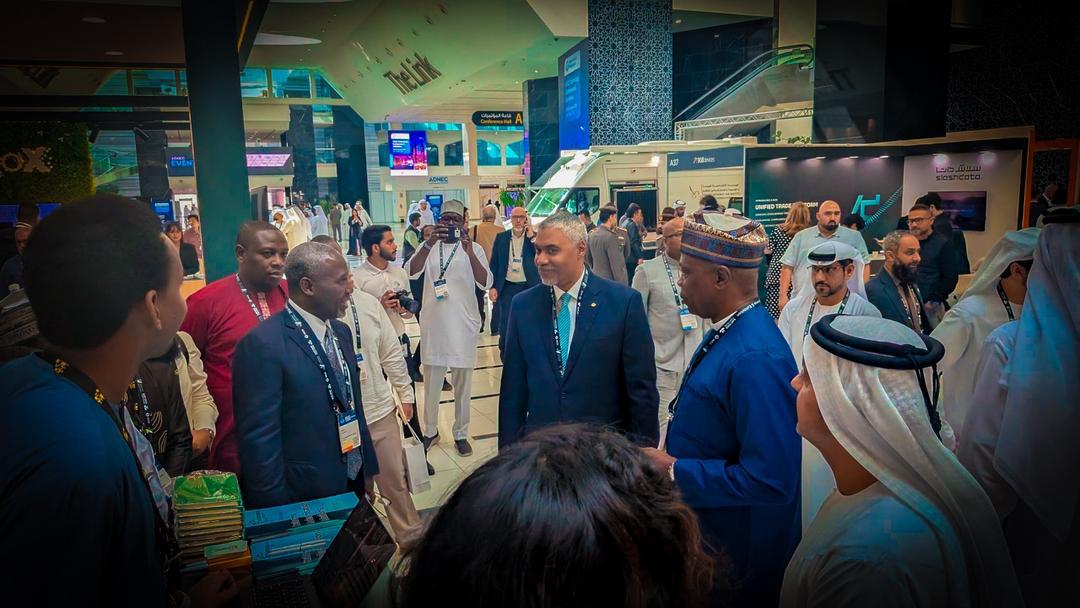
FROM BORDER TO MARKETS: HOW NIGERIA’S REFORMS ARE REWRITING AND MODERNISING TRADE FACILITATION
By O’tega Ogra
On the surface, the 2026 World Customs Organization (WCO) Technology Conference in Abu Dhabi, held in the last week of January, followed a familiar script: flags, formal sessions, carefully worded speeches. But beneath the choreography, something more consequential was unfolding. As customs chiefs and trade officials compared notes on the future of borders, Nigeria arrived not with theory, but with a working proposition.
The Nigeria Customs Service (NCS) Modernisation Project, being implemented through Trade Modernisation Project (TMP) Limited, unveiled to a global audience of customs administrators and policy leaders a window into how Africa’s largest economy is confronting one of the most complex challenges in public administration: reforming the machinery of trade while it is still running.
For decades, customs reform was treated largely as a technical exercise—frequent patches here, shoddy fixes there; new software in one corner, revised procedures in another. Nigeria’s presence in Abu Dhabi signalled something different. TMP Limited, working in partnership with the NCS, advanced the argument that trade is a cornerstone of economic development and must be supported by organic, sustainable partner ecosystems. Such ecosystems deliver speed and trust, revenue and credibility, and secure borders without stifling commerce.
That argument resonated in a room increasingly aware that global trade is no longer defined solely by tariffs and treaties, but by data, interoperability, and the quiet efficiency of systems that simply work.
The annual WCO Technology Conference has, in recent years, become a barometer for the direction of global trade governance. This year’s discussions reflected a shared anxiety: supply chains are more fragile, compliance risks are rising, and governments face mounting pressure to collect revenue without discouraging investment. Customs administrations now sit at the intersection of all three.
Nigeria’s response has been to attempt a full reset.
At the heart of this effort is the NCS Modernisation Project, implemented through a Public-Private Partnership (PPP) arrangement with TMP Limited as the concessionaire. The project seeks to replace fragmented technology deployments and manual processes within the Nigeria Customs Service with a single, integrated framework. This is anchored on B’Odogwu, a Unified Customs Management System (UCMS) that brings together cargo clearance, risk management, payments, and inter-agency collaboration. The ambition is sweeping—and so are the stakes.
Alhaji Saleh Ahmadu, OON, Chairman of TMP, framed the initiative as nothing less than an institutional reconstruction, designed to position the NCS at the forefront of global customs administration technology, aligned with international standards and assurance frameworks.
“Digital trade modernisation is not just about upgrading systems,” he told participants in Abu Dhabi. “It is about upgrading trust, predictability, and confidence in how trade flows through our borders.”
That choice of words matters. Nigeria’s economy has long struggled with the perception gap between its size and the ease of doing business. Investors cite delays. Traders complain of opacity. Government points to revenue leakages. In this context, customs reform becomes as much a credibility project as a technical one.
Saleh’s message was timely and direct: modern trade demands modern customs. Data-driven processes, automation, and risk-based controls are no longer luxuries; they are prerequisites for competitiveness in a world where capital moves faster than policy.
The institutional face of this digital transformation is the Comptroller-General of Customs, Bashir Adewale Adeniyi, who led Nigeria’s delegation to Abu Dhabi. His message reflected a subtle but important shift in how customs leadership now understands its role.
“Customs administrations today must evolve from gatekeepers to facilitators of legitimate trade,” Adeniyi said. “Nigeria’s customs modernisation project reflects our determination to place the Nigeria Customs Service at the centre of national economic transformation.”
It is a familiar refrain globally, but one that carries particular weight in Nigeria, where customs revenue remains a critical pillar of public finance. Automation, Adeniyi argued, is not about weakening control; it is about strengthening it through intelligence rather than discretion.
Risk management systems reduce unnecessary physical inspections. Integrated platforms limit human contact. Data analytics improve compliance targeting. When executed well, the result is faster clearance for compliant traders and tighter scrutiny for high-risk consignments.
In Abu Dhabi, peers from Asia, Europe, and Latin America listened closely to Nigeria’s presentation. Reforming customs in a small, open economy is one thing. Doing so in a market of over 200 million people, home to some of Africa’s busiest ports and its largest economy, is quite another.
Nigeria’s engagement emphasised that customs modernisation is embedded within a broader economic reform agenda under President Bola Ahmed Tinubu, GCFR. Simplifying trade procedures, strengthening revenue assurance, and aligning with international standards form part of a wider effort to reposition the economy for investment-led growth.
What makes the project particularly noteworthy is its insistence on end-to-end coherence. Rather than digitising isolated functions, the reform aims to connect agencies, harmonise data, and reduce duplication across government—an all-of-government approach that acknowledges an uncomfortable truth: trade friction is often created not at the border, but between institutions.
The WCO 2026 Technology Conference offered Nigeria more than a platform; it provided a stress test. Questions from peers were pointed. How will change be sustained across political cycles? How will capacity be built? How will entrenched institutional behaviours be unlearned?
The responses were pragmatic. Reform is being phased. Training programmes are ongoing. International benchmarks are being adopted not as slogans, but as operating standards. There were no claims of perfection—only a clear statement of intent.
“Our engagement here underscores Nigeria’s commitment to international cooperation,” Adeniyi noted. “We are learning, sharing, and contributing to global conversations on the future of customs administration.”
That contribution matters. As Africa moves to deepen regional trade under continental frameworks, customs efficiency will determine whether integration succeeds in practice or remains aspirational on paper. Nigeria’s experience, if successful, could offer a valuable template for other developing economies navigating similar constraints.
In Abu Dhabi, the mood was cautious but curious. Reform fatigue is real in many countries. Yet there was a growing sense that Nigeria’s effort—precisely because of its scale and difficulty—deserves attention.
Borders are rarely glamorous. But they are decisive. In choosing to modernise its borders in public, under global scrutiny, Nigeria is signalling something beyond technical competence. It is signalling seriousness.
And in global trade, seriousness still counts.
O’tega Ogra is Senior Special Assistant to President Bola Ahmed Tinubu, GCFR, responsible for the Office of Digital Engagement, Communications and Strategy in the Presidency.
-

 celebrity radar - gossips6 months ago
celebrity radar - gossips6 months agoWhy Babangida’s Hilltop Home Became Nigeria’s Political “Mecca”
-

 society6 months ago
society6 months agoPower is a Loan, Not a Possession: The Sacred Duty of Planting People
-

 society5 months ago
society5 months agoReligion: Africa’s Oldest Weapon of Enslavement and the Forgotten Truth
-

 news6 months ago
news6 months agoTHE APPOINTMENT OF WASIU AYINDE BY THE FEDERAL GOVERNMENT AS AN AMBASSADOR SOUNDS EMBARRASSING

